 |
 |
 |
 |
Above and below: The children brought in fridge magnets from all the countries they are from and have been to. They placed them on the world map to share their knowledge of the world and its nations to enable their peers to learn about the different countries they have experienced.
 |
 |
 |
 |
 |
Below: We support our EAL children by clearly modelling target language and explicitly teaching key vocabulary and sentence structures. We provide visual word mats, word cards, and classroom displays to help our children learn subject-specific vocabulary and keywords related to their class topics.
 |
 |
 |
 |
 |
 |
 |
We provide a range of different roleplay areas (for example, a shop), in which the children are offered some ‘guided talk’ with staff. This helps to situate their EAL learning in useful real-life contexts. We also provide one-to-one language support such as reading outdoors to promote speaking and listening skills development.
 |
 |
 |
Above and below: We use a range of objects, pictures, picture dictionaries, diagrams, and actions as visual aids to support our EAL children’s understanding.
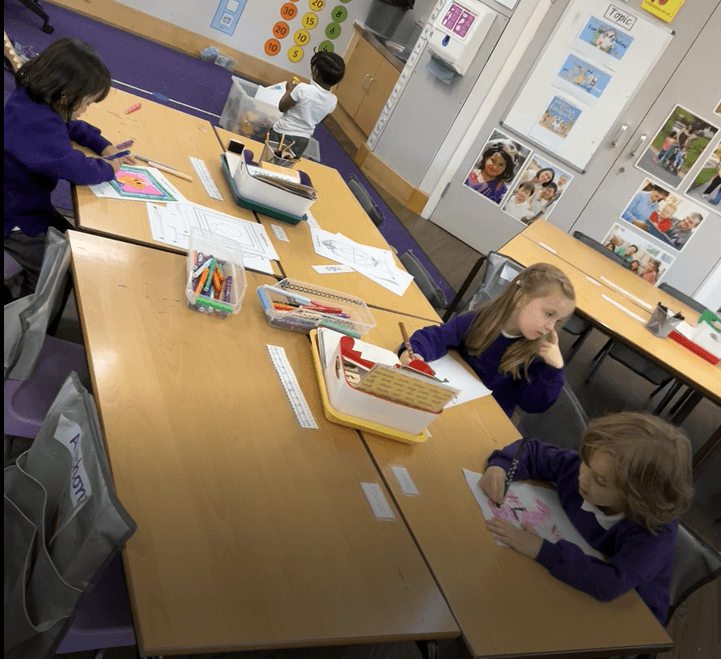 |
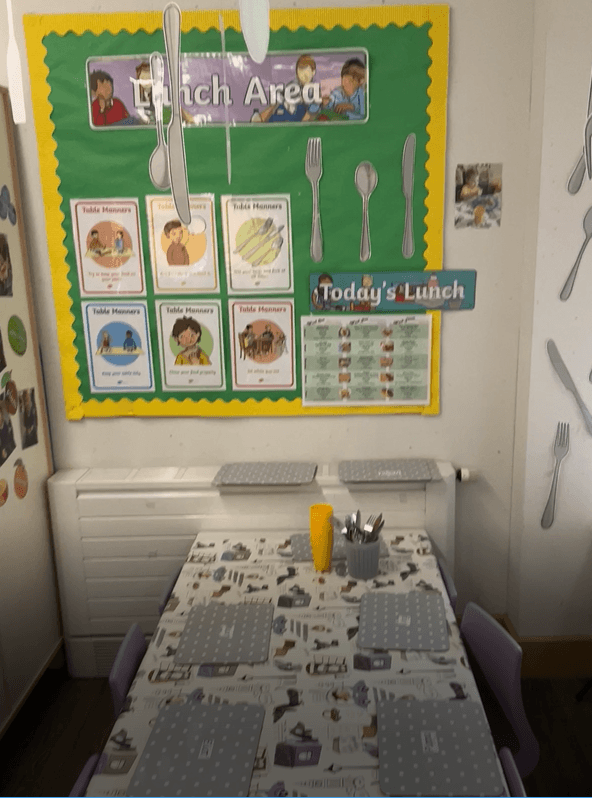 |
 |
 |
 |
Below: We provide fun and engaging demonstrations and examples of the class tasks for our EAL children so that they can better understand what they need to do.
 |
 |
 |
 |
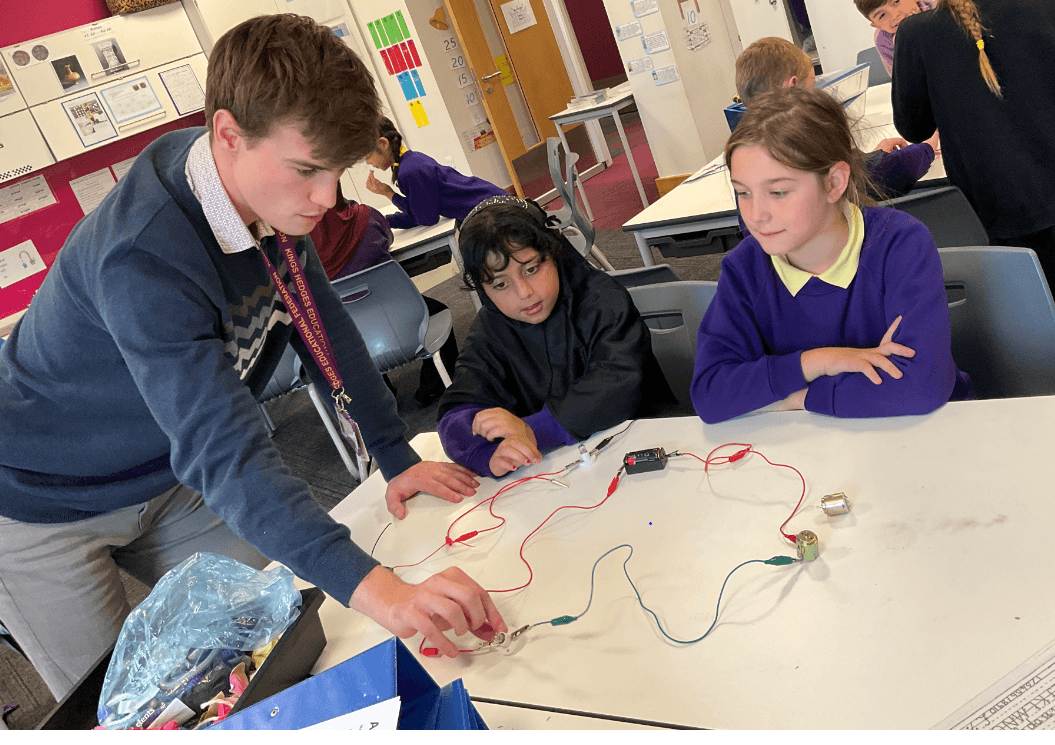 |
King’s Hedges provides all its EAL children with a bilingual dictionary so that they can look up and translate new words from their own language into English and vice versa. We communicate with parents through the Home Reading Record, which has lists of keywords and learning schedules for each year group. Also, we provide images of the uniform the children are expected to wear, information on school opening and closing times for each year group, and outlines of upcoming topics so that parents can first discuss the key ideas in their children’s first language at home to reinforce and develop their understanding.
We celebrate and reflect all our children’s different languages and cultural heritage.
Below are some examples:
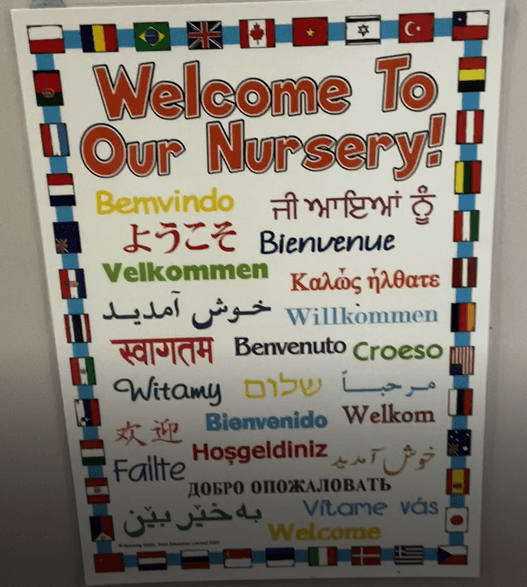 |
 |
 |
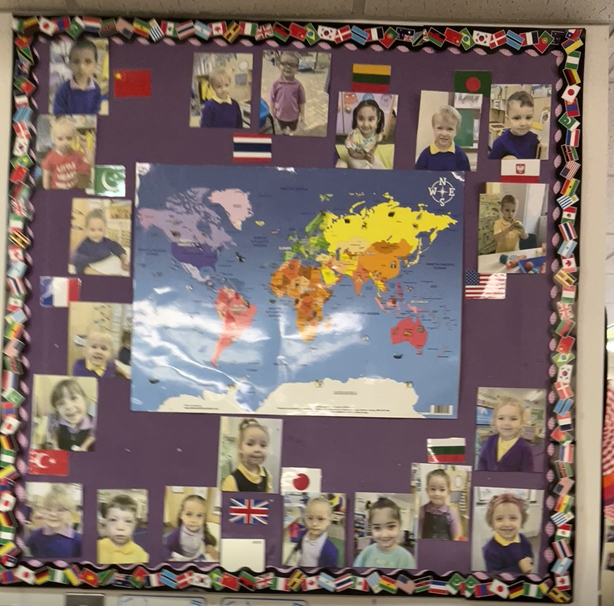 |
 |
 |
 |
 |
Below are some great resources and activities you can use to support your child’s learning:
General support from the British Council for learning English for primary school children
http://learnenglishkids.britishcouncil.org/
Phonics games
Reading activities for primary and pre School
ESL Lesson Plans, Materials & Activities
Google Translate: Immediate translation of words and phrases into many different languages.
EAL language resources in 43 home languages and English.
An EALwellbeing resource that introduces EAL learners to English vocabulary and language structures.
https://www.learningvillage.net/free_resources
Develop listening, speaking, reading, and writing skills in English. Resourcesto support Ukrainian families.
https://www.hes.org.uk/Page/16929
Arabic Bengali Chinese Hindi Bengali Slovak Romanian Portuguese Lithuanian Polish Turkish Italian Hungarian Greek
Marhaba Namaskar Nǐ hǎo Namaste Namaskar Ahoj Bună ziua Olá Sveiki Cześć Merhaba Salve Yasou Jo napot
Arabic Bengali Chinese Hindi Bengali Slovak Romanian Portuguese Lithuanian Polish Turkish Italian Hungarian Greek
Marhaba Namaskar Nǐ hǎo Namaste Namaskar Ahoj Bună ziua Olá Sveiki Cześć Merhaba Salve Yasou Jo napot
EAL – English as an Additional Language
Vision
Excellence is achieved through care, creativity, and challenge.
Intent
Our curriculum design ensures our pupils with English as additional language are able to acquire and successfully apply their reading, writing and maths skills across our knowledge rich curriculum. Through planned and skilled adaptions by our teachers, we provide both support and challenge to pupils who are new to English as well as those who are fluent. Our curriculum also provides opportunities for our pupils with EAL to recognise and celebrate their national, ethnic and cultural backgrounds within our school setting.
Implementation
The assessment of our pupils with EAL on entry, combined with our adaptive teaching groups (ATGs), enables us to decide on the most appropriate class group for each individual pupil. These groups are fluid and allows our pupils with EAL to transition between groups depending on their needs and strengths across curriculum. This further helps to provide additional challenge to pupils with EAL who excel in specific areas of the curriculum (such as mathematics), yet may need further support in writing or reading.
Through our curriculum, pupils with EAL are helped in their acquisition both of the English language and the basic skills needed for them to flourish in their learning as high quality levels of English are spoken and modelled by our teachers across lessons. Our interleaved curriculum ‘Themes’ expose our pupils to a wide variety of contexts in which new vocabulary and core knowledge is reinforced, used and applied. Additional support through our school’s Ordinarily Available Provision is available when needed.
The integration of social skills and moral values in our curriculum further helps our pupils with EAL to grow and thrive as holistic individuals, in addition to being active and engaged learners.
Further strategies and resources used to support our pupils with EAL:
· Pre-teaching of vocabulary
· Reduction of cognitive overload through clear and concise instruction
· Regular review and revisiting of concepts through spaced retrieval
· Small group interventions
· Use of ‘My turn, together, your turn’ to support with pronunciation and vocabulary
· Visual aids (e.g. dual coding, visual timetable, emotions)
· Vocabulary mats and writing frames
· Opportunities to use home or first language with staff (where available)
Impact
Assessment for learning is embedded across the planning and implantation of our lessons so teachers can assess the progress our pupils with EAL across all areas of our curriculum and use this to inform the next steps in their planning and sequencing of lessons.
All pupils’ complete assessment checkpoints three times per year in mathematics, reading and writing through which teachers can compare the progress of our pupils with EAL compared with our pupils who do not have EAL and identify additional support or resources pupils with EAL may need to be successful. The progress of EAL pupils is currently one of the highest attaining groups across the curriculum.
Enhancements
All children are encouraged and supported to take part in all aspects of school life, including pupil roles, school clubs and trips and visits.
















